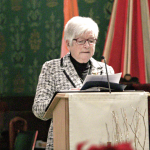With the framework of a national pharmacare program launched by the Liberal-NDP coalition, some are finding its initial focus on contraceptives a “deeply troubling” aspect of the deal.
The pharmacare program promises to improve access to contraceptives for nine million Canadians, along with medication, including insulin, for an estimated 3.7 million people living with diabetes.
Bill C-64 was a key stipulation outlined in the confidence-and-supply agreement between the Liberals and the NDP nearly two years ago. It satisfies a core commitment to this deal by the March 1 deadline set by the NDP.
Pete Baklinski, communications director for Campaign Life Coalition, said, “It’s deeply troubling that the Liberal/NDP coalition government is putting forward a pharmacare plan that includes coverage of contraception.”
“Contraception, meaning ‘against conception,’ refers to pills, devices, patches, implants, inserts, injections, barriers, etc., that are used to deliberately frustrate the natural consequence of the sexual act, rendering procreation impossible,” said Baklinski. “Its use in marriage is contrary to authentic sexual love, breeding a mentality in its users that is anti-life and anti-family. At a time when Canada’s fertility rate is at an all-time low of 1.3 and plummeting, the government should be doing all in its power to create incentives for couples to have children, not paying for immoral medical interventions that suppress their fertility.”
Baklinski argues that it is just an extension of the “culture of death” that permeates modern society.
“In the final analysis, the Liberal/NDP pharmacare plan with its offer of free contraception is a profound indictment of our country’s anti-life and anti-child mentality, highlighting how deeply the culture of death has wounded our nation,” he said.
The governing coalition will now push Bill C-64 through parliament and attempt to convince provincial governments to opt into the national pharmacare accord. Alberta and Quebec are already voicing intent not to sign on to the plan.
“We are not going to allow Ottawa to pick and choose what coverage should be available to Albertans based on issues they find politically palatable,” said Alberta Health Minister Monique LaGrange. “Much like previous national programs the Liberal government has announced, including the dental program, there was no consultation done with provinces or service providers.”
Instead, the two provinces want to receive their share of the funding to deploy within their provincial health-care systems as they see fit.
Other provinces await more information before signing on to federal pharmacare.
Critics suggest there is nothing concrete in Bill C-64 for provinces to opt in to at this time. Much of the 10-page bill is preamble and definitions. According to the text, the law empowers the Minister for Health, Mark Holland at present, to convene a panel of experts within 30 days to offer recommendations about operating and financing national, universal single-payer pharmacare. It also asks the minister to seek advice from the Canadian Drug Agency about the prescription drugs and products to include in a universal single-payer plan and then publish this list one year after the bill receives royal assent.
Once this list of essential prescription drugs and related products is published, discussions will begin with provinces, territories, Indigenous persons and other stakeholders about implementing national pharmacare. Afterwards, the minister would then develop a national bulk purchasing strategy.







